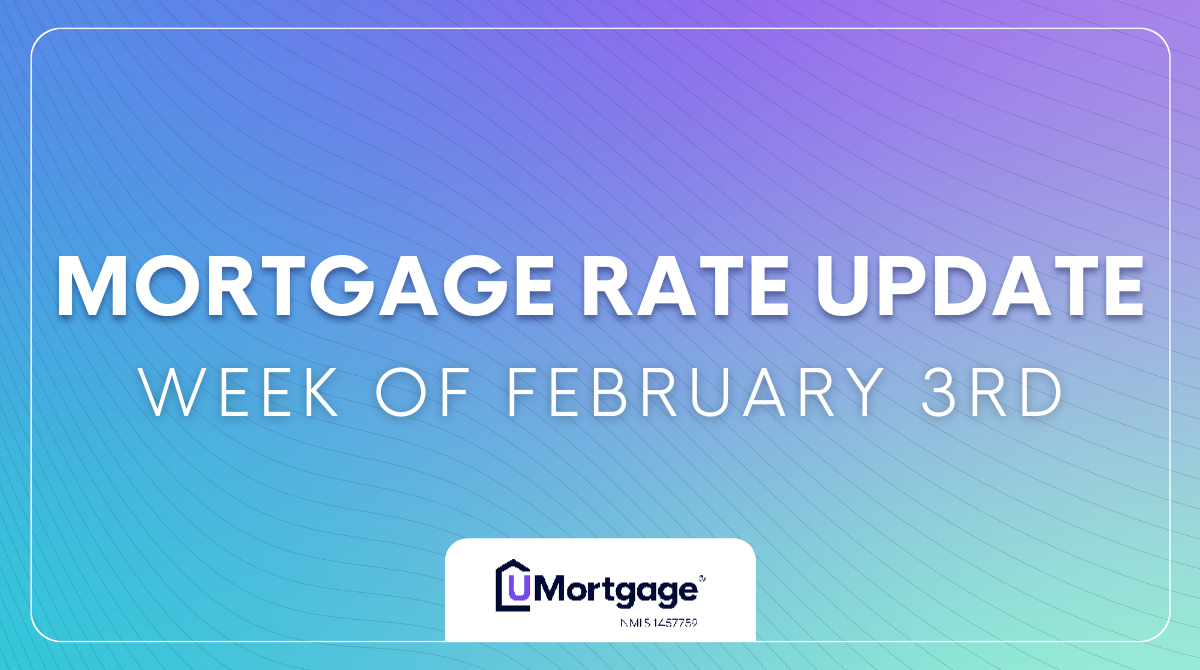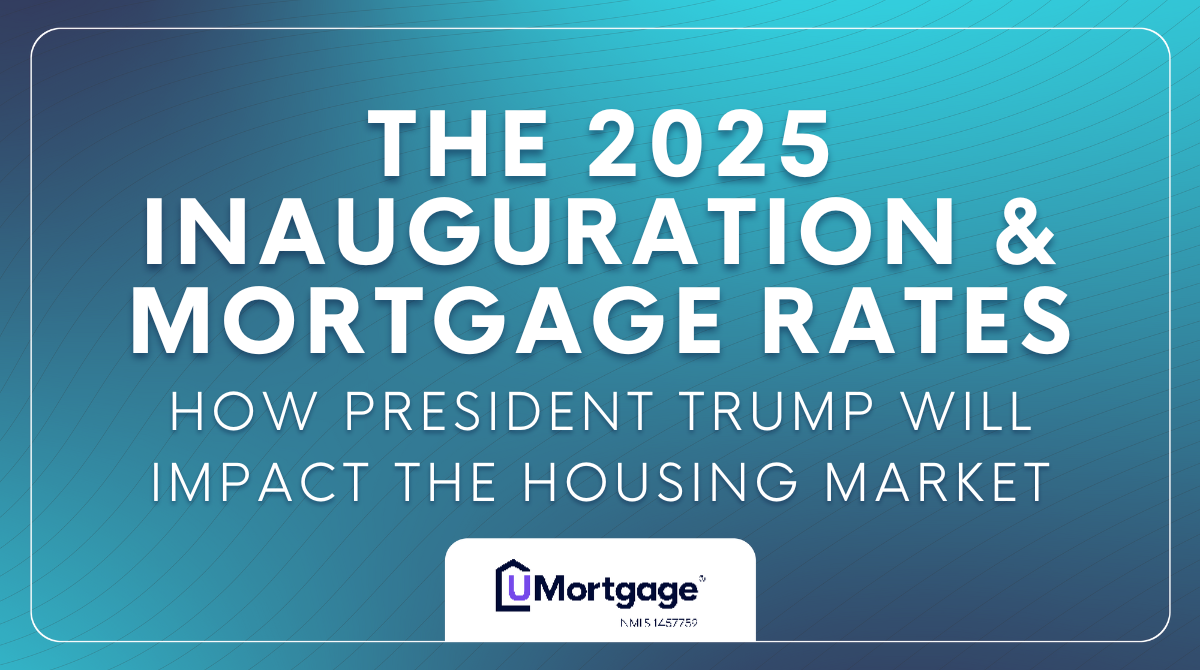

Ryan Heffron
Meet Ryan!
As your trusted UMortgage Loan Originator, my goal is to simplify the mortgage process to make your home loan experience easy to navigate! Please reach out so I can help start your home financing journey.
Serving Homebuyers In:
- Minnesota
Mortgage Calculators
Monthly Payment
Find your monthly payment
What does a monthly mortgage payment look like for you? Get an estimate with some basic information.
Estimated Monthly Payment
The UMortgage mortgage calculators are for estimation purposes only. This is not a commitment to lend. For an exact quote based on your individual financial circumstances, please contact me.
Affordability
What is your budget?
Curious about how much you can afford to spend on a home? Use our calculator to get an estimate on your maximum budget.
Maximum Home Price
Maximum Monthly Payment
The UMortgage mortgage calculators are for estimation purposes only. This is not a commitment to lend. For an exact quote based on your individual financial circumstances, please contact me.
Refinance
Should you Refinance?
Refinancing might save money on your monthly mortgage payments, putting cash in your pocket. With some basic information from you, we can help decide if this is a good path for you.
Monthly Savings
Total Savings
The UMortgage mortgage calculators are for estimation purposes only. This is not a commitment to lend. For an exact quote based on your individual financial circumstances, please contact me.
VA Entitlement & Payments
Discover Your Buying Power With Our VA Home Loan Calculator!
If you are a veteran, an active-duty member of the military, or the spouse of a current or former military member, you are eligible to purchase a home with your VA home loan benefit! By using the calculator below, you can get a glimpse into your buying power and the estimated monthly payment of your VA loan as you start planning your homebuying journey.
Estimated Monthly Payment
Required Down Payment
Limit
$0
Entitlement Used
$0
Available Entitlement
$0
No Limit
How is my monthly payment calculated?
The UMortgage mortgage calculators are for estimation purposes only. This is not a commitment to lend. For an exact quote based on your individual financial circumstances, please contact me.
Your Mortgage Questions, Answered!

Housing Market Update | Week of February 3rd
The housing market held steady last week, even with the release of the PCE inflation report and discussions around potential tariffs. However, this week could bring more movement, with four key labor reports on the calendar and increasing speculation about trade policy shifts. We will also hear from multiple members of the Federal Reserve throughout the week with any insight into future monetary policy sure to impact the market. The labor market remains a critical factor influencing the Fed’s decisions, with inflation playing a close secondary role. If unemployment trends higher, it could push mortgage rates lower. On the other hand, if new tariffs are enforced, concerns about inflation could drive rates upward. It’s a delicate balance, so don’t hesitate to reach out for updates as the market reacts. Last Week's Mortgage Rate Recap Rates Were Stable Mortgage rates were stable last week after our two big events—the January Fed Meeting and the January Personal Consumption Expenditures (PCE) report—came in line with previous expectations. To no surprise, the Fed opted to keep the federal funds rate between a range of 4.25-4.5% and cited the solid labor market as the reason to keep things steady. On Friday, the PCE report showed that headline inflation rose by 0.3% in December and increased from 2.4% to 2.6% year-over-year, both in line with expectations. Shelter inflation, which reflects housing costs and rent prices, was the biggest contributor to this increase, with a monthly reading of 0.3%. This Week's Mortgage Rate Forecast Rates Could Be Volatile The market could be in for a volatile week ahead. Four major labor reports will be released daily between Tuesday and Friday, culminating in the ever-significant Bureau of Labor Statistics Jobs Report on Friday morning. As we mentioned previously, the Fed still sees the current job market as a healthy one. We’ve been sitting at or below the current unemployment rate of 4.1% every month since November 2021. While mass government layoffs could give the Fed reason to cut rates, it could also lead to a job-loss recession, which would hugely damage the U.S. economy. Another thing to keep an eye on is President Trump's potential enforcement of tariffs. Rising costs for imported goods will have a ripple effect throughout the economy, and most economists believe that tariffs on goods from Mexico, China, and Canada would contribute to rising inflation. This would then give the Fed reason to pause rate cuts or potentially hike rates. If these tariffs are enforced, mortgage rates might rise in preparation for the subsequent economic impact. For a more in-depth review of how President Trump's policies could impact the housing market, check out this blog that touches on the economic impact of tariffs, tax proposals, and more.

Tax Season Secrets for Homeowners: Property Tax, Escrow, & Deductions
Tax season comes with a few extra steps for homeowners. Between your escrow payments, property taxes, and forms specific to homeowners like Form 1098, there are a few things for homeowners to consider as they file taxes themselves or pass off necessary documents to a tax professional. Below is everything you need to know to properly file your taxes and maximize your possible deductions this year. Understanding Your Escrow Account If you’ve ever wondered why your monthly mortgage payment includes more than just your loan’s principal and interest, your escrow account is the answer. This account is set up by your lender to cover property taxes and homeowners’ insurance, ensuring these essential expenses are paid on time and in full. During tax season, your escrow account plays a crucial role. Here’s how: Property Tax Payments: Your lender uses the funds in your escrow account to pay your property taxes on your behalf. You’ll receive a statement from your lender detailing these payments, which can be helpful when filing your taxes. Record Keeping: Keep track of your escrow account’s annual statement to ensure your property taxes are paid correctly. If you notice any discrepancies, reach out to your lender immediately. What To Do With Your Property Tax Bill As you’re preparing to file your taxes, you’ll receive a property tax bill in the mail. You might be confused about whether you need to pay this bill yourself or if it’ll be handled by your escrow account. Here’s what you need to know: If You’re Escrowed: Your loan servicer will pay your property taxes using funds from your escrow account. The bill you receive in the mail is just for record-keeping purposes. If You’re Not Escrowed: Make sure you pay your bill as soon as possible to avoid late fees, penalties, or even a tax lien. If You’re Not Sure: Double check your January and December mortgage statements to confirm that your property taxes are covered by an escrow account. Escrow accounts simplify property tax payments by breaking the payments into smaller monthly increments to help you avoid large, unexpected bills. Deducting Interest Paid on Your Mortgage One of the most significant tax benefits of homeownership is the ability to deduct interest paid on your mortgage. This deduction can save you thousands of dollars, especially in the early years of your loan when interest payments are highest. Follow these steps to claim your mortgage interest deduction: Form 1098: Each year, your lender will send you IRS Form 1098, which details the total amount of mortgage interest you paid. This form is essential for claiming your deduction. Eligible Loans: The deduction applies to mortgages on your primary or secondary home, up to $750,000 in loan principal for loans originated after December 15, 2017. For older loans, the limit is $1 million. Itemize Deductions: To take advantage of this benefit, you’ll need to itemize deductions on your tax return instead of taking the standard deduction. Pro Tip: If you refinanced your mortgage using prepaid interest or points paid at closing, these may also be deductible. Tax season doesn’t have to be overwhelming for homeowners. By understanding how escrow accounts, property taxes, and mortgage interest deductions work, you can maximize your savings and approach tax filing with confidence. If you have any questions about escrow, property taxes, or tax season tips for homeowners, make sure to contact your UMortgage Loan Originator for some insider info!

How the 2025 Inauguration Impacted the Housing Market
President Donald Trump officially took office for his second term on January 20th, 2025. From day one, the new administration outlined its priorities for housing, inflation, and economic growth. As these policies take shape, here is an overview of how they might influence the housing market and the broader economy. Housing Affordability: A Focus on Reducing Costs During his campaign, President Trump pledged to address housing affordability by cutting regulations and introducing tax incentives aimed at reducing construction costs. These measures are intended to stimulate new home construction and increase housing supply, potentially helping to stabilize high home prices. On the night of his inauguration, the administration released a memorandum regarding an executive order addressing housing relief. The memo stated, “Many Americans are unable to purchase homes due to historically high prices, in part due to regulatory requirements that alone account for 25 percent of the cost of constructing a new home according to recent analysis.” Trump has already followed through on his promise to start cutting regulations on the first day of his second term. The aforementioned executive order includes a freeze on government hiring and the creation of new federal regulations. Additionally, a newly established Department of Government Efficiency will review federal agencies and identify opportunities for regulatory cuts. One such agency is the Department of Housing and Urban Development (HUD), now led by Scott Turner—a former Texas state representative and executive director of the White House Opportunity and Revitalization Council. Turner has expressed a commitment to maximizing existing resources but has not yet detailed plans for federal investments in affordable housing programs. The department’s future budget and priorities will become clearer as the administration’s broader fiscal policies are implemented. Tariffs and Their Potential Effects on Housing Costs A significant area of focus for the administration is the proposed implementation of tariffs. While these measures aim to protect domestic industries, they may also increase the cost of construction materials, potentially driving up prices for new homes and contributing to inflation. President Trump announced plans to enact tariffs on imports from Canada and Mexico starting February 1st, alongside higher tariffs on Chinese goods. Economists warn that these tariffs could lead to higher costs for homebuilders. According to the National Association of Home Builders (NAHB), 70% of sawmill and wood product imports come from Canada, which already faces a 14.5% tariff.Another report from the NAHB shared that China provided the largest share of imported goods used in residential construction at 27%, making homebuilders particularly sensitive to trade policies. Tariffs could also influence mortgage rates through their impact on inflation. A report by Pantheon Macroeconomics estimates that a 10% universal tariff could increase inflation by approximately 0.8% in 2025. Rising inflation may prompt the Federal Reserve to adjust interest rates, further affecting the housing market. Tax Proposals and Household Finances The Trump administration has proposed extending the 2017 Tax Cuts and Jobs Act and introducing new tax reforms, including exemptions for tip income, overtime pay, and Social Security benefits, as well as deductions for auto loan interest. While these measures could increase disposable income for many Americans, the potential rise in consumer goods prices due to tariffs could offset these benefits. During his inaugural address, President Trump reiterated his commitment to policies that prioritize American workers and families, stating, “Every decision on trade, on taxes, on immigration, [and] on foreign affairs will be made to benefit American workers and American families.” However, none of the executive orders signed on January 20th directly addressed tax reforms, leaving questions about the timeline for implementing these proposals. Federal Reserve’s Role in the Housing Market The Federal Reserve has been actively working to maintain a healthy jobs market while completing its coveted "soft landing" for the fall of inflation. Although tariffs create worries about inflation, the Fed seems to have concerns about the impact of mortgage rates rising above 7%, as indicated by a statement from Fed President Christopher Waller during an appearance with CNBC. Likely part of this is the impact that high mortgage rates have on construction jobs. In previous economic cycles where the Fed maintained high mortgage rates, homebuilders began laying off construction workers, and a recession closely followed. Of course, economic health will remain a priority, and rates will continue to be largely driven by inflation and the labor market. As things stand, jobless claims data remains at historic lows while inflation has fluctuated between 2.5% and 2.9% in the final months of Biden's presidency. What Lies Ahead for Homebuyers The coming months will reveal the extent to which these policies impact housing affordability, mortgage rates, and overall economic growth. While some measures, like tax reforms and regulatory cuts, aim to increase homeownership opportunities, others, such as tariffs, may introduce cost pressures. If you’re considering buying a home or refinancing, now may be a good time to explore your options. Connect with a UMortgage Loan Originator in your area to get personalized guidance tailored to your financial goals.
Serving Homebuyers In:
- Minnesota
